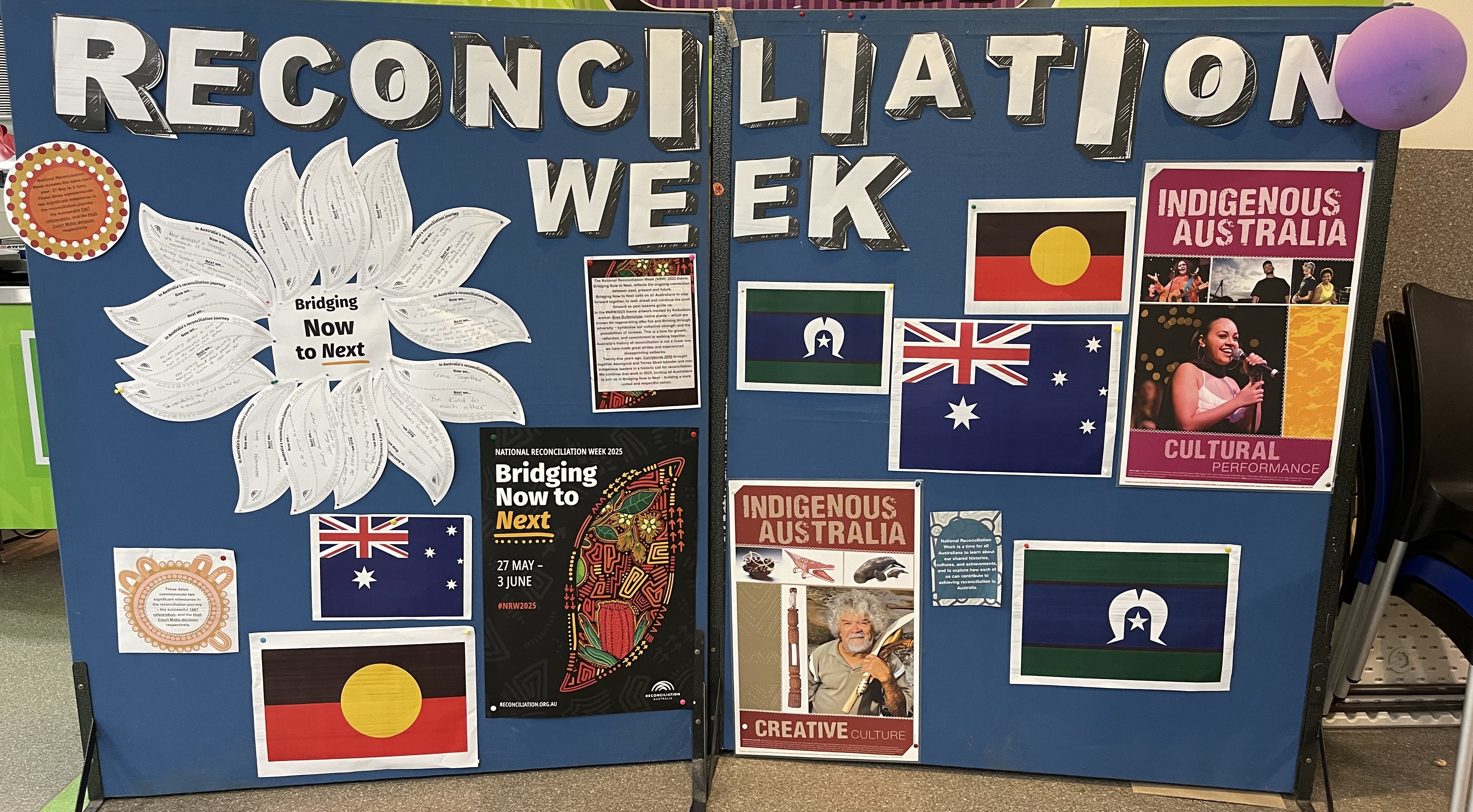
Bundaberg Hospital was buzzing with energy and reflection this week, as staff and visitors gathered in the hospital foyer to mark the beginning of National Reconciliation Week.
With the theme “Bridging Now to Next,” the event invited everyone to pause and consider how our past, present, and future are deeply connected on the journey toward reconciliation.
This annual week of reflection (27 May – 3 June) commemorates two pivotal milestones in our national story:
27 May – The 1967 Referendum, where Australians overwhelmingly voted ‘Yes’ to count Aboriginal and Torres Strait Islander peoples in the national census.
3 June – The Mabo Decision, which recognised traditional land rights and dismantled the myth of terra nullius.
In the spirit of reconciliation, the Aboriginal and Torres Strait Islander health team hosted an information stall at Bundaberg Hospital. Staff and visitors were invited to share their own commitments to reconciliation by reflecting on what we’re doing now—and what we must do next.
Here’s what we heard:
Now, we...
- Celebrate reconciliation week
- Are educating doctors to have better communication and to build trust in the health care system
- Respect culture and the bond to country
- Don’t have enough representation in future doctors
- Acknowledge the progress we’ve made through open dialogue and shared truth-telling
- Have better understanding of First Nations people and culture
- Have a better understanding of the impacts of colonisation and intergenerational trauma
Next, we...
- Commit to ongoing conversations about reconciliation throughout the year.
- Keep working towards closing the health gap for Aboriginal and Torres Strait Islander people
- Open up pathways for Indigenous people to access more education and become future doctors
- Actively support self-determination by investing in Aboriginal and Torres Strait Islander-led initiatives
- Deepen our commitment by embedding cultural safety and accountability across all levels of our organisation
National Reconciliation Week is more than a date on the calendar. It’s a reminder that reconciliation lives in our everyday actions—how we work, how we care, how we listen, and how we learn.